This article will offer a critique of the two most recent Dune movies directed by one of my favorite directors, Denis Villeneuve.
Part one was released over a year ago, and the second part was just released in France today. We had the opportunity to watch it and in this article we’ll try to give it a review.
The origin of Dune
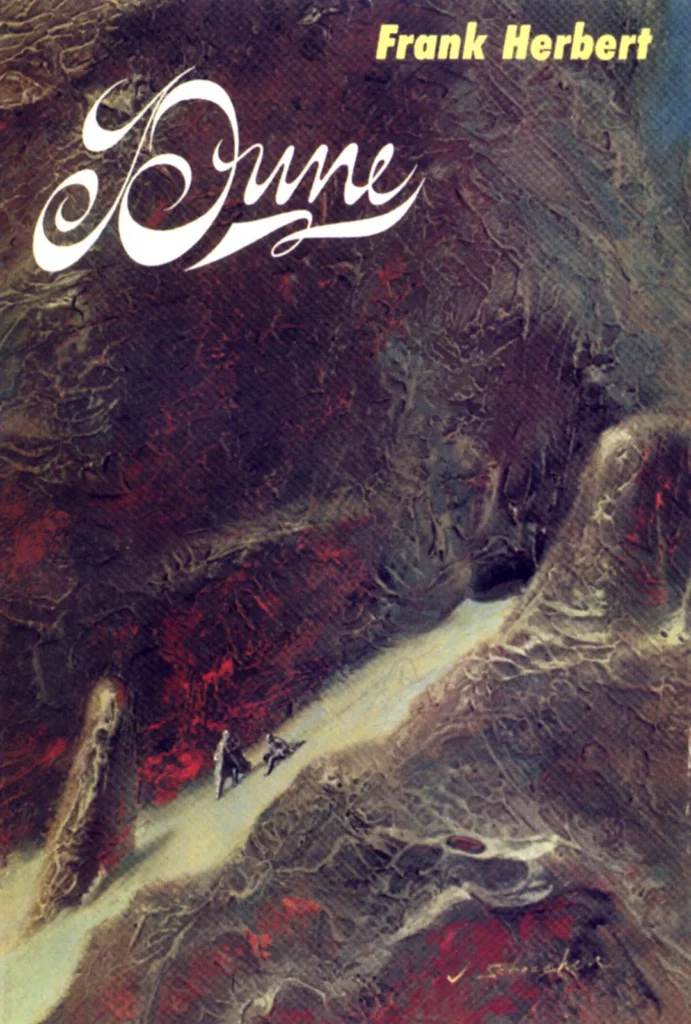
“Dune” originated as an epic science fiction novel penned by Frank Herbert. It was subsequently adapted for the silver screen by none other than David Lynch as a single movie.
While Lynch’s adaptation didn’t achieve significant box office success, it certainly garnered a devoted fan base.
It wasn’t until 2021 that Director Denis Villeneuve released his new rendition, which is likely to span across three installments.
What makes Dune so special
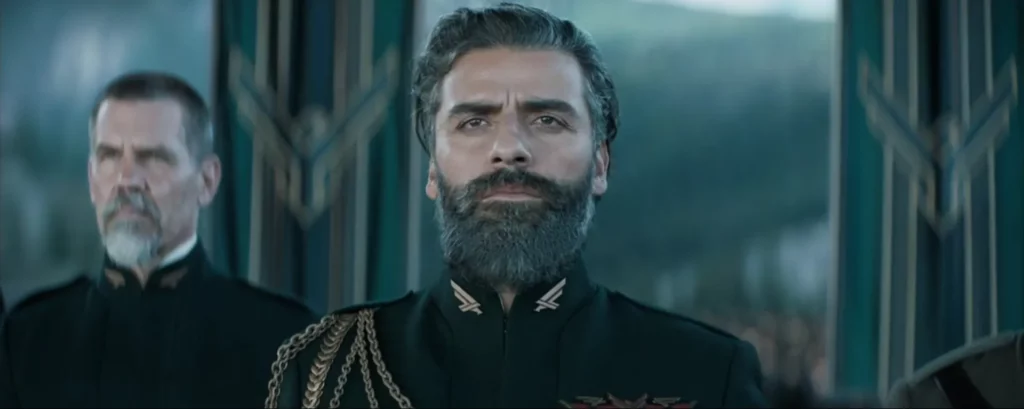
While the movie portrays a science fiction universe, the interactions between clans and characters bear striking resemblance to geopolitical dynamics in our own world.
In the movie, elements such as religion, archetypal figures, morality, and the struggle for resources are all present, mirroring the complexity of our own world. Despite its complexity, the film is intricately and masterfully written.
Understanding the parallels between the clans in the movie and real-world countries doesn’t require excessive effort.
How was the first Lynch version?
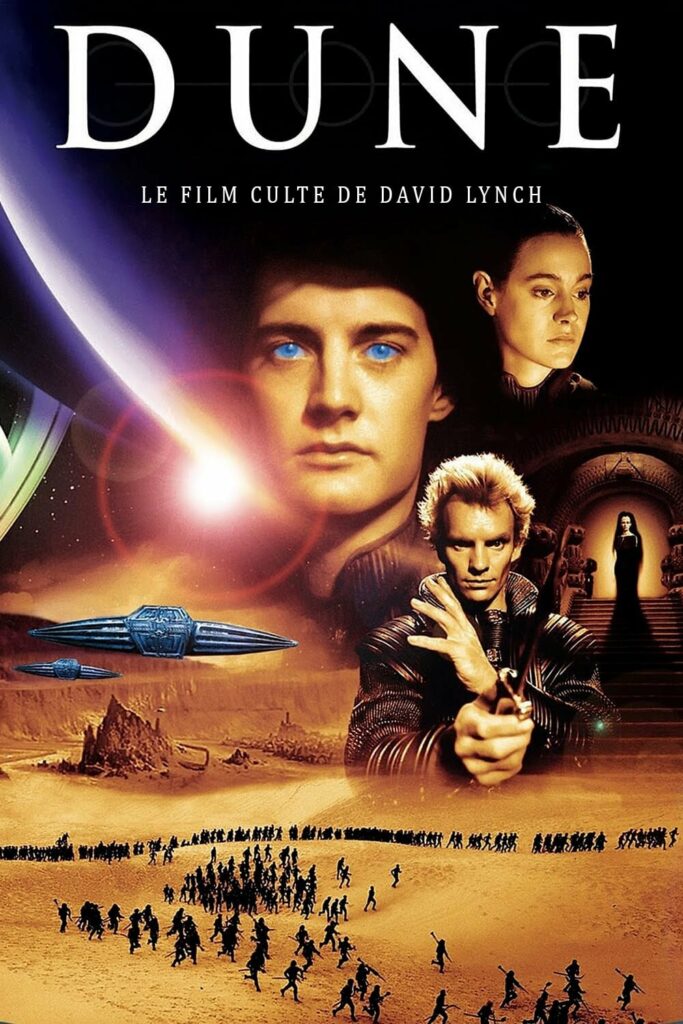
The original Lynch version truly embodies the aesthetics of the 80s, complete with some kitschy visual effects. However, to be fair, it remains quite watchable even by today’s standards.
How does this newer versions compare?
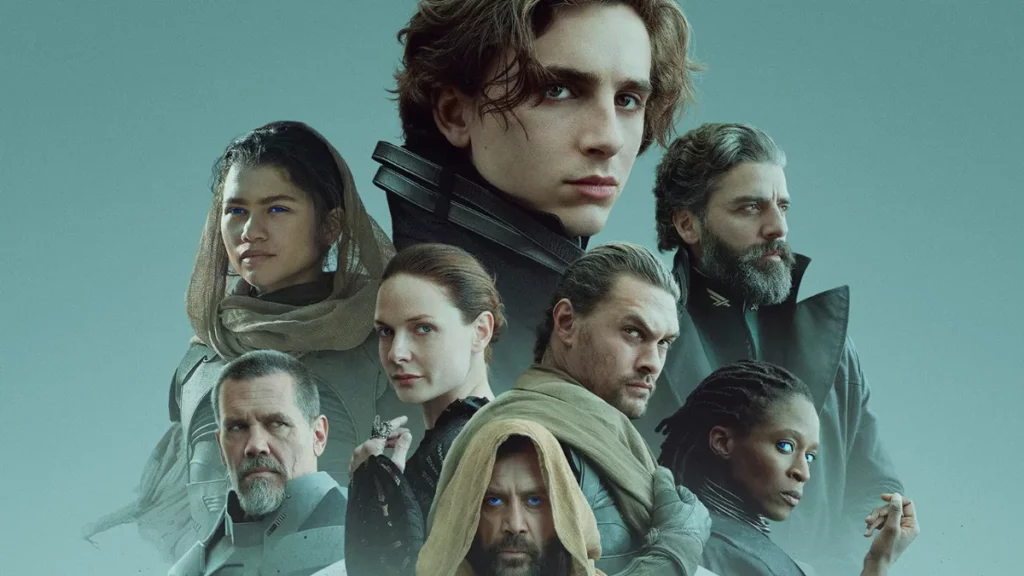
The revised edition is notably more polished and devoid of comedic elements. Greig Fraser’s photography is genuinely breathtaking, and the production design reaches the realm of fine art.
Hans Zimmer’s score, combined with the stellar cast, adds to the grandiosity of this epic trilogy. The choice of Timothée Chalamet and Zendaya for the main roles, in particular, couldn’t have been better.
Detailed review
I believe the initial installment of the new trilogy was somewhat drawn-out in its attempt to fully unveil the universe, whereas the second part feels excessively condensed.
It might have been beneficial to incorporate more exposition about the Harkonnen’s world in the first installment, especially since it’s the only scenes not from the perspective of Paul Atreides.
The presence of his psychopath cousin and the emperor would have worked better if they were introduced in the first opus, although I understand that the main focus was the rivalry between the leader Vladimir and Leto.
The screenplay
Although the film boasts impressive visuals and maintains a high level of immersion and tension, I find the pacing to be somewhat uneven. Adapting a movie into three parts can sometimes make it challenging to strike the right balance.
For instance, I found it difficult to fully connect with the characters compared to a film like “Avatar: The Way of Water.” It’s as if we’re observing the events from a distance, perhaps due to the use of short telephoto lenses. Consequently, the relationship between Shani and Paul, while pleasant, felt somewhat distant.
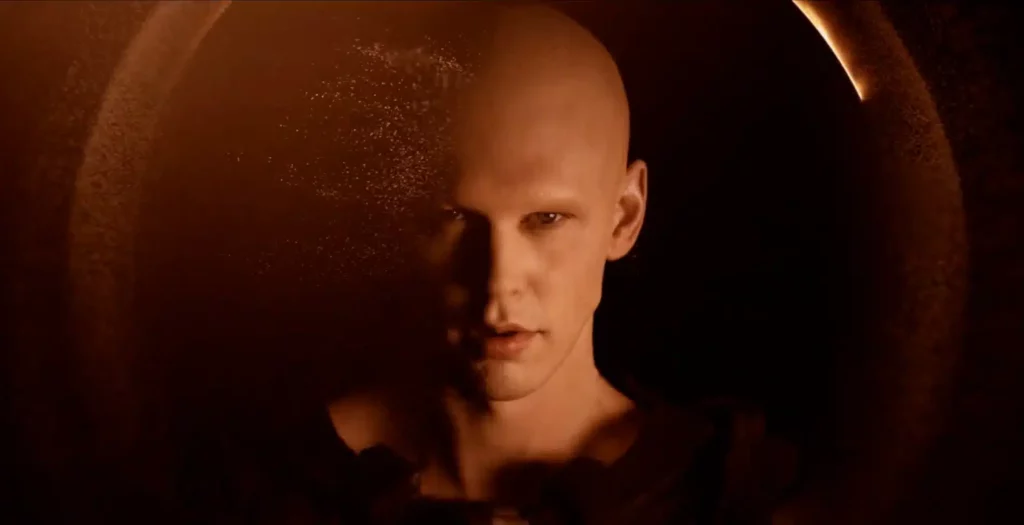
Additionally, the portrayal of characters like Margot Fenring and Feyd Rautha lacked depth, making it challenging to form a meaningful connection with them.
Overall, when compared to films like Ridley Scott’s “Gladiator,” “Dune” appears to lean more towards intellectualism rather than raw emotion. Even though the battle scenes are visually impressive, they don’t quite convey a sense of challenge, almost as if wee are disconnected from it.
The cast
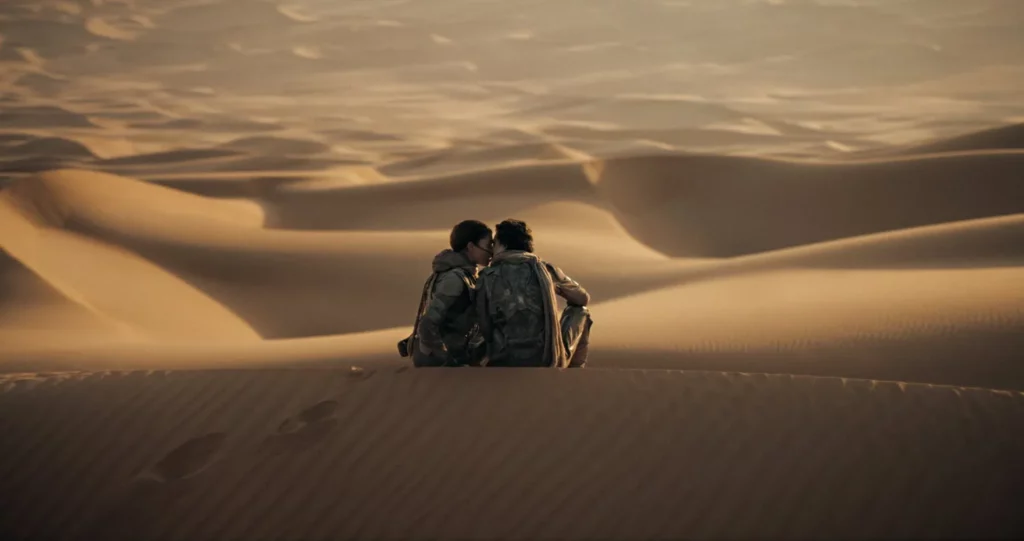
In years, this is one of the most exceptional casts I’ve come across. I’m a huge admirer of Zendaya, who embodies the role of a Fremen perfectly, while Timothée Chalamet is impeccably suited to portray a posh heir destined to become a hero.
Javier Bardem portrays the rugged yet honorable character flawlessly, while Oscar Isaac delivers a superb performance as the benevolent leader. The casting is impeccable across the board, including Charlotte Rampling’s portrayal of Gaius Helen Mohiam and Rebecca Ferguson as Lady Ferguson.
The cinematography
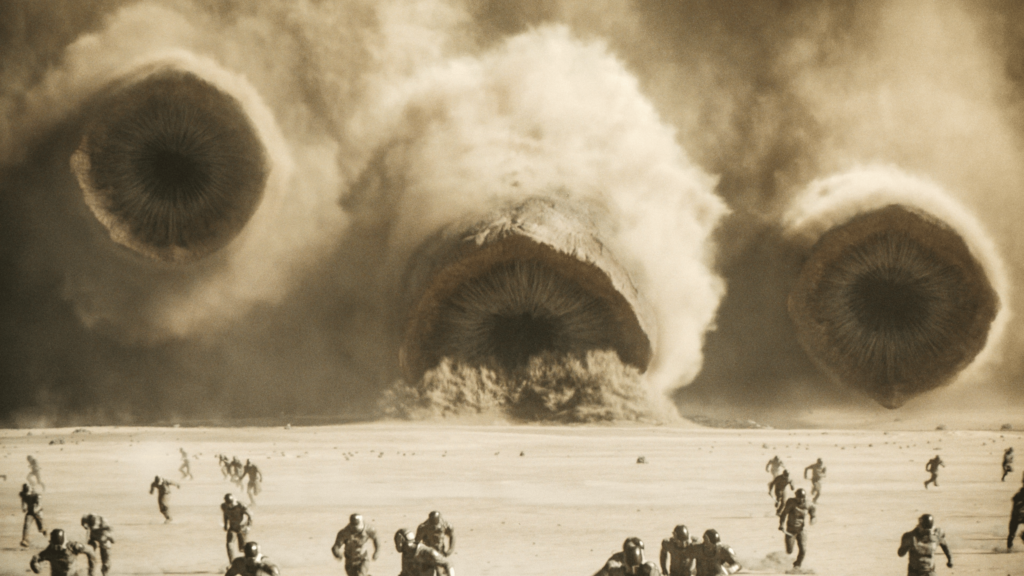
This could be one of the most visually stunning films I’ve seen in recent memory. The utilization of a very shallow depth of field, courtesy of the Arri Alexa LF and Mini LF cameras paired with Panavision lenses, almost gives it the impression of being shot on the Alexa 65.
While I greatly admire Greig Fraser, I must say that the contrast between Dune and, let’s say, The Creator is like night and day.
In comparison, The Creator appears akin to an 8mm documentary when placed alongside this masterpiece. The brilliance of the cinematography truly manifests in the immersive and authentic portrayal of the various worlds.

I’ve heard that they filmed the movie digitally but then transferred the footage onto film to achieve an organic aesthetic. This may be one of the reasons why the film appears less like a CGI spectacle.
There’s also a great sense of simplicity yet tasteful choice when it comes to framing and camera movements. Overall, I think the cinematography is perhaps one of the best this year.
The production design
I’ve heard that the sets were constructed on a full scale, with some movable walls to facilitate changes in location.
I believe the individuals involved in the production design of this film are true artists. The color palette used for Caladan, Arrakis, or the House of Harkonnen is not only sublime but also perfectly captures the essence of each clan’s culture.
Verdict
8.5 out of 10.
Overall, both Dune Part 1 and Part 2 are stunning and captivating films that delve into a complex narrative centered on geopolitics and religion.
I believe intellectuals will appreciate this reinterpretation of Frank Herbert’s renowned novel. What stands out to me about Dune is its meticulous portrayal of our world’s intricacies, encompassing religion, global conflicts, and resource wars.
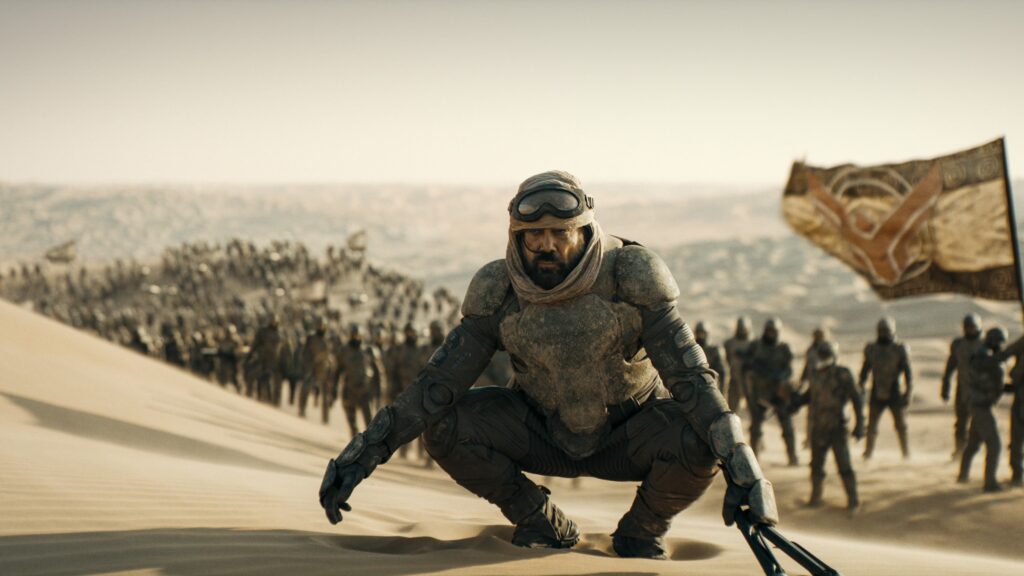
Additionally, it masterfully weaves in timeless hero archetypes, offering audiences a captivating spectacle to behold.
One potential drawback thus far is that due to the dense nature of the film, it’s more challenging to connect with the characters, especially considering its intellectual depth.
Explanations appear to be conveyed more through dialogue than through emotional experience. It’s akin to observing leaders of worlds playing a game of risk rather than immersing oneself in Paul’s perspective.
Informations
Dune
Our Video Production Company : https://www.neonnight.fr/en/


GIPHY App Key not set. Please check settings